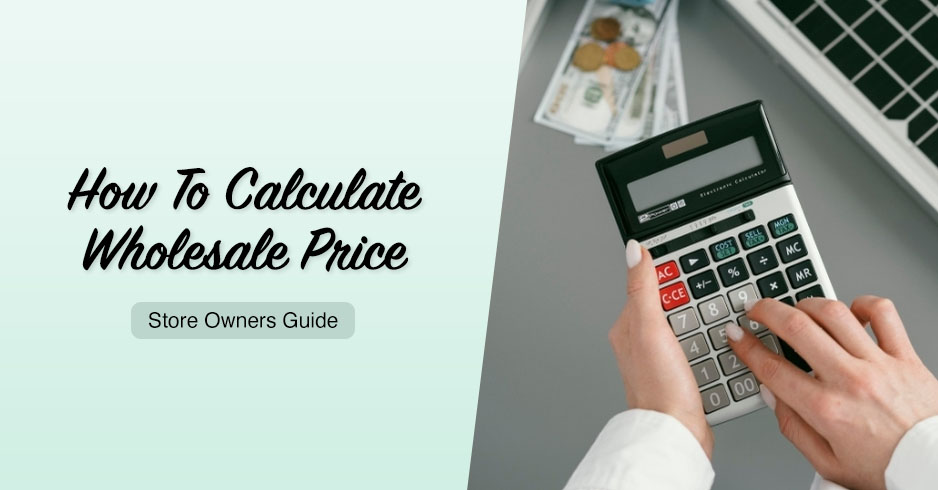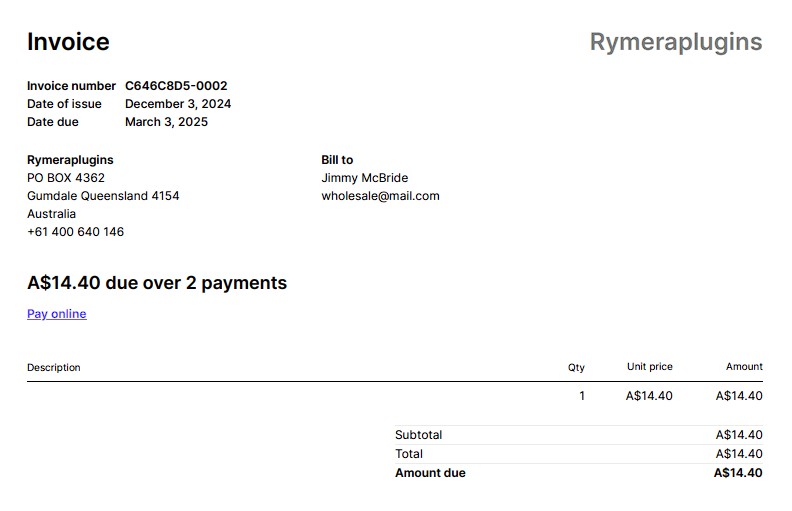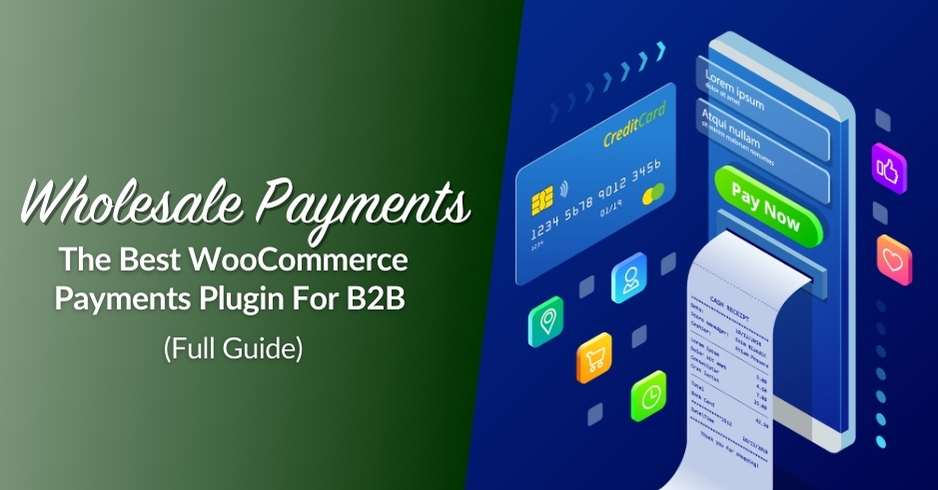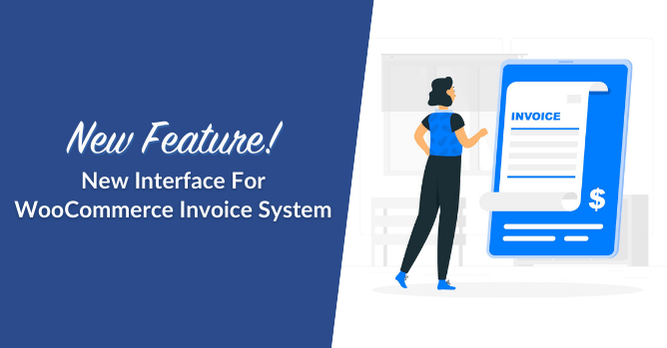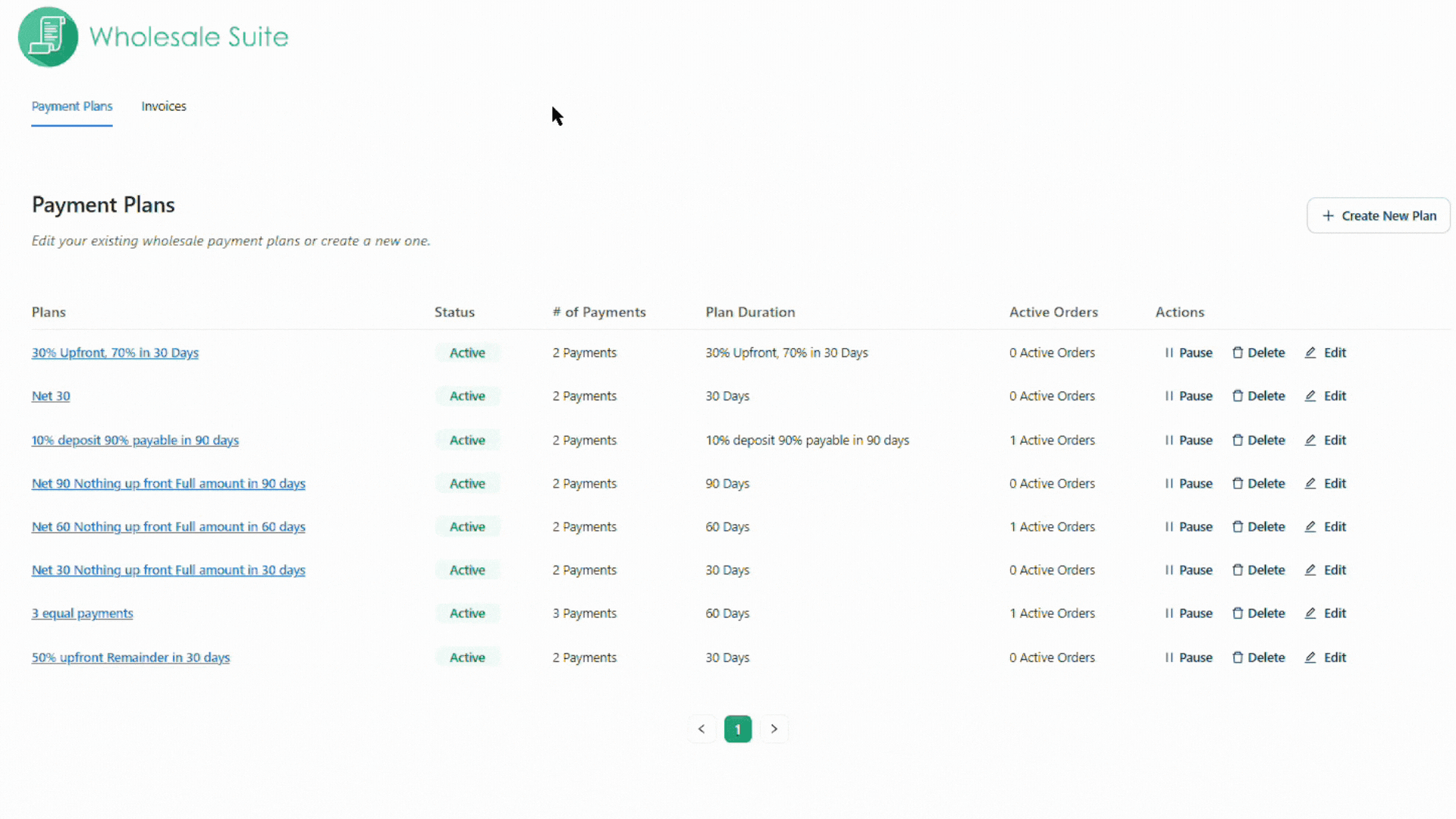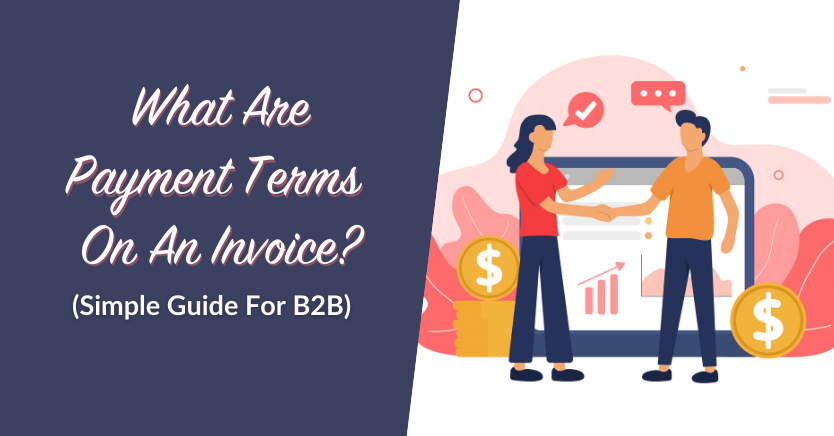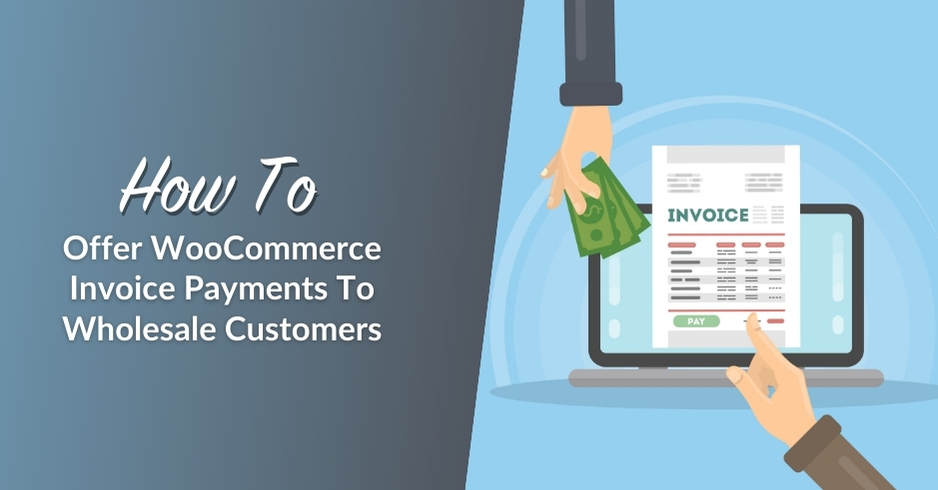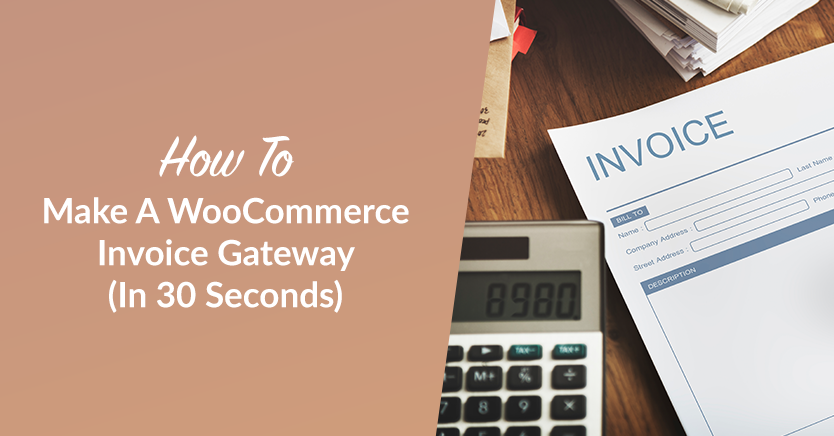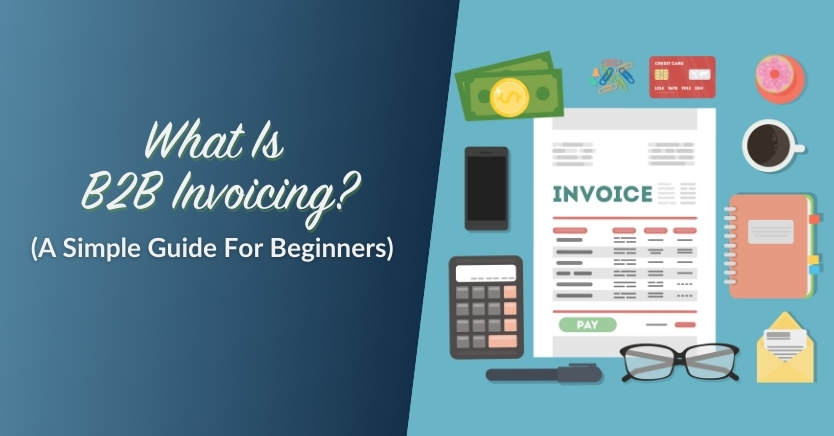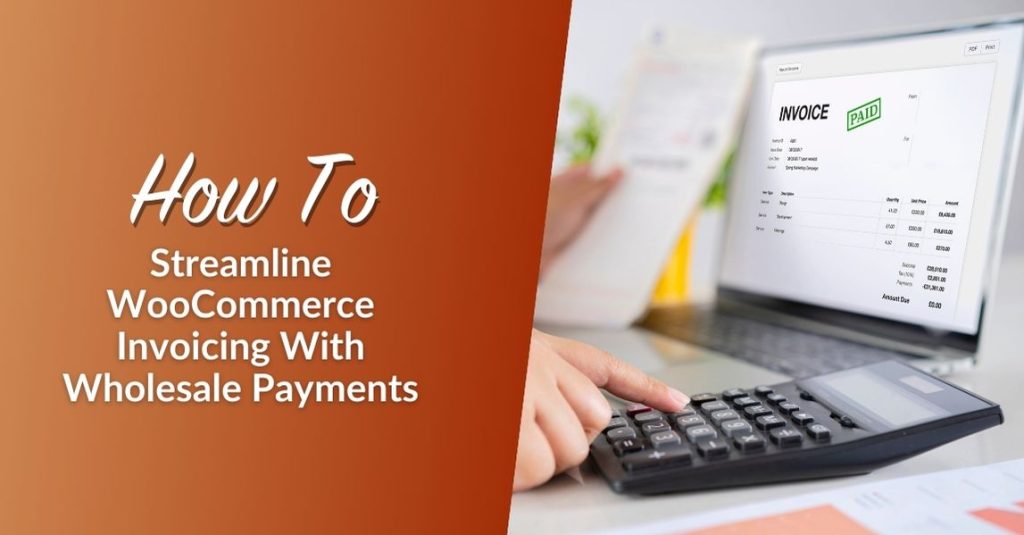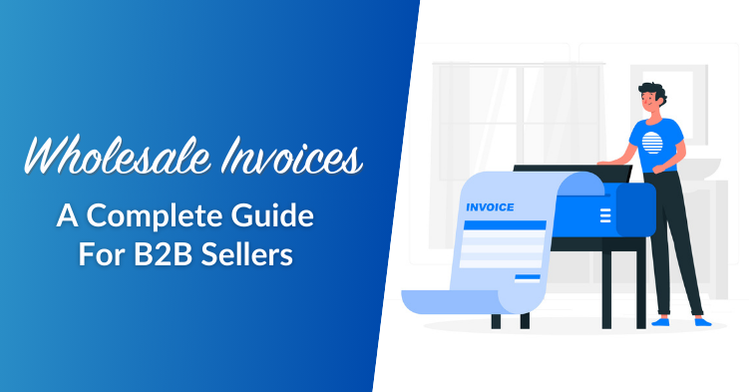
Businesses collaborate in many ways, especially when they buy and sell large amounts of products. One common way to keep track of these big transactions is by using wholesale invoices. In this article, we will talk about what these are, how they work, and why they matter to businesses that work with other businesses.
Let’s get going!
What Are Wholesale Invoices?
A wholesale invoice is a document that records details when a seller sends products to a buyer in large quantities. It works like a receipt but serves business-to-business (B2B) transactions.
Example of a wholesale invoice
Imagine a toy manufacturer selling a large order to a retail store. The seller issues a wholesale invoice listing the toys, cost per item, and total amount due. This document helps both the seller and buyer keep a clear record of the transaction.
Key information in a wholesale invoice
Wholesale invoices typically include:
- Date of transaction
- Names of the companies involved
- List of items with prices
- Total cost of the order
Businesses often create these documents using pre-designed forms that are easy to fill out.
How businesses handle wholesale invoices
Companies that manage multiple orders often rely on wholesale billing systems to process invoices efficiently. And let’s say for other instances, a large wholesale business might use a computerized system that automatically sends invoices when an order is placed.
Wholesale invoices help both the seller and buyer track orders and pricing while keeping transactions organized. Many businesses now send invoices via email or online portals to save time and improve efficiency.
Why Are Wholesale Invoices Important For B2B Transactions?
When two businesses work together, having clear records of their deals is very helpful. Wholesale invoices help both parties clearly understand their agreement. Let’s discuss this more in detail.
1. Wholesale invoices help keep track of money and products
When a company uses a wholesale invoices document, it is easier to see how much money should be paid. In addition, it helps with the recording of sales and payments. Companies may use wholesale invoicing software to keep these records safe and simple. This also makes it easier to send invoices to clients without extra steps. Moreover, business forms that are used for wholesale billing can be shared with others in the company so everyone is on the same page.
2. It helps build trust between two companies
When the seller sends a clear invoice, the buyer feels confident that the order has been properly recorded. For example, if a company needs to send invoices for every order, using a free invoice tool can be very helpful. In another case, a seller might need to send invoices to many different customers. In both cases, having a simple and clear document makes the whole process easier for everyone.
According to a study in E-commerce industries, it emphasizes that thorough documentation serves as an objective reference, mitigating risks associated with relying solely on memory.
3. Clear invoices help when it is time to pay taxes or check the company’s earnings
Accountants and auditors verify every sale by reviewing these documents. When companies use accurate wholesale billing, they also make it easier for the government to check that all the numbers are right. In other words, wholesale invoices play an important role in keeping a business organized and legal. As a result, many companies in the wholesale business invest in good invoicing systems. These systems can automatically send invoices when a sale happens, which helps both sides keep the record straight.
Wholesale Invoices Vs. Retail Invoices: What’s The Difference?
At first, wholesale and retail invoices may seem similar, but businesses use them in different situations. Businesses issue retail invoices when they sell a product directly to a consumer. In contrast, they use wholesale invoices when selling a large number of products to another business.

Let’s say a local store might get its supplies from a large manufacturer. The manufacturer uses a wholesale invoices document to record the bulk sale, while the store might use a retail invoice when it sells an item to a customer.
Here are several points about their differences and function:
1. The amount of detail provided
In wholesale invoices, the document often shows details for a large order. The numbers may be larger, and there can be a long list of items. On the other hand, retail invoices are simpler. They usually show just a few items, and the amounts are smaller. In addition, wholesale invoices usually include extra details such as discounts for large orders, payment terms for bulk sales, and even delivery dates. Retail invoices, however, focus on immediate sales and payments.
2. The process for creating these invoices is different
Many companies that work in the wholesale business have systems that automatically fill in the details of wholesale invoices. They may even use free invoice templates that come with step-by-step instructions. On the other hand, retail invoicing is often done at the time of purchase using a point-of-sale system. These differences make it clear why having the right kind of invoice is important. In the end, both types of invoices serve the same purpose: to record a sale. However, wholesale invoices are built to handle larger, more complex orders.
3. Some companies choose to use the same software for both wholesale billing and retail billing
This can be helpful when a company sells to both other businesses and individual customers. They can use business forms that are flexible enough to handle both cases. However, the company will need to pay extra attention to the details when they send invoices.
Why Digital Wholesale Invoices Are Better Than Paper-Based Invoices
When companies work with many orders, they have a choice between paper-based documents and digital documents. In many cases, digital wholesale invoices are better than those printed on paper. This is because digital documents are easier to store, share, and update.

Imagine a scenario in which a company needs to send invoices to 50 different buyers in one day. With paper-based invoices, the process can be slow and prone to errors. In contrast, a digital system can help the company send invoices with a few clicks. This saves time and avoids mistakes.
Here are also other points to consider:
1. It is more efficient when invoices are digitized
Digital systems often include features that help companies track when they send invoices and when payments arrive. Such systems can also work with other business forms to keep the data organized. It is common for a wholesale business to use software that can send invoices automatically once an order is processed.
2. Digital wholesale invoices help companies keep their records safe
The documents are stored on secure servers and can be backed up regularly. This means that if something happens to the physical copies, the company still has a record of the sale. In contrast, paper-based invoices can be lost or damaged easily.
3. Digital invoices are more flexible when it comes to editing
If a mistake is found, the company can quickly update the digital document and send the corrected version. This is not possible with paper documents. In addition, digital wholesale invoices often include features like automatic calculations, which help reduce the chance of human error. This makes the entire process smoother for everyone involved.
The Future Of Wholesale Invoicing: Trends And Automation
The way companies handle paperwork is changing, and many are moving toward systems that work automatically. In the future, trends and new tools will shape the way wholesale invoices are made and managed.
In this section, we look at five trends and forms of automation that are making a difference in this area.
1. Automated data entry
Many companies are now using tools that fill in invoice details automatically. This change saves time and reduces mistakes when a business forms document is prepared. Some systems even allow businesses to send invoices directly once an order is completed. These underscore the significant impact that automation, particularly in data entry, can have on reducing manual workloads and improving overall efficiency.
2. Cloud-based storage
More companies are storing their documents in the cloud. This means that digital wholesale invoices can be accessed from anywhere. In addition, cloud storage helps keep business records safe from loss or damage. Implementing cloud management software can further streamline access, organization, and security of all your business documents.
3. Integration with payment systems
New software often comes with the ability to work with payment systems. This helps companies track when a buyer has paid. In this case, the system may even send invoices automatically after a sale. Additionally, McKinsey’s analysis of the global payments ecosystem highlights that integrating payment systems can streamline operations and improve transaction times.
4. Mobile access
Over 40% of business users prefer mobile access for document management. A related study found that 80% of employees worldwide need access to documents on their mobile devices.
And nowadays, with many people using smartphones and tablets, it is now easier to access digital documents on the go. Companies can check their invoices from anywhere, even when they are not at the office. Mobile access helps many wholesale business owners keep an eye on their operations.
5. Customizable templates
Businesses are looking for invoice tools that allow them to create custom templates. These templates can be changed to fit the needs of a company. For example, a free invoice template might include space for company logos, payment details, and other information. This customization helps companies feel more in control of their paperwork.
In summary…
These changes are especially helpful for companies that deal with many orders. Many companies still value personal communication and use these systems as helpful tools. They often combine their best efforts with technology to send invoices that are correct and on time.
When businesses integrate these systems, they record every sale properly and fix mistakes more easily. This trend is growing in the wholesale business, where every detail matters.
Manage Your Wholesale Invoices With Wholesale Payments
One key reason to use a payment system with your invoice management is that it keeps the records in one place. This is where Wholesale Payments, a powerful plugin from Wholesale Suite, becomes the perfect solution.
Wholesale Payments helps businesses streamline their wholesale invoicing by automating payment processing and recording every transaction for easy access. This reduces the chances of payment disputes and missed invoices while improving cash flow management.
To know more about Wholesale Payments, you may read:
Wholesale Payments simplifies this process by offering automated payment tracking, customizable payment terms, and seamless integration with WooCommerce.
Whether you offer net payment terms or require deposits upfront, Wholesale Payments ensures that your invoices are managed efficiently, reducing the risk of late or missed payments.
With fewer manual steps, the overall process is clearer and the chance of mistakes is lower. By using Wholesale Payments, businesses can take full control of their wholesale invoicing, ensuring accuracy, reliability, and efficiency in every transaction.
Other Related Articles
Frequently Asked Questions
What is wholesale billing?
Wholesale billing is the process of creating documents for bulk transactions between companies. It is similar to creating a receipt but made for business-to-business sales. This method uses business forms that list items, prices, and totals clearly. Many companies use tools that help them send invoices automatically when a sale is made. Wholesale billing is a common practice in the wholesale business and helps both sides understand what is due.
What is the difference between retail and wholesale billing?
Retail billing is used when a store sells an item directly to a customer. The document for a retail sale is short and shows only a few details. In contrast, wholesale billing is used for large orders between companies. It includes many items and more details such as discounts for bulk purchases and payment terms. The difference lies in the volume of the order and the amount of information recorded. In addition, retail billing is often done at the point of sale, while wholesale billing is processed after the order is complete.
What is bulk invoicing?
Bulk invoicing is the practice of sending one invoice for multiple orders or a large group of items. This method helps companies save time when they need to send invoices for many transactions at once. It is a common practice in the wholesale business because it reduces the need for individual documents for every order. Instead, companies can use one clear invoice to show all the details of many orders. This practice is made easier with digital systems that can send invoices automatically.
What are the types of invoices?
There are several types of invoices used by businesses. Some common types include:
- Standard Invoices: These show the details of the sale.
- Proforma Invoices: These are used as an estimate before the final sale.
- Credit Invoices: These are issued when there is a need to adjust a previous invoice.
- Recurring Invoices: These are sent regularly for ongoing services.
- Final Invoices: These mark the end of a transaction.
Each type helps companies keep track of sales and manage their records. Business forms that include these different invoices make it easier to keep everything organized. Many businesses also use free invoice templates that guide them through the process of creating each type.
Wrapping Up: Making Wholesale Invoicing Work For You
The use of wholesale invoices is a simple and clear way to record transactions. In our experience, as a company who has worked with many businesses over time, we have seen that clear records build trust. By using a combination of straightforward and friendly systems, businesses can keep their transactions running smoothly.
In this article, we have talked about how wholesale invoices are used in B2B sales:
- What are wholesale invoices?
- Why are wholesale invoices important?
- Wholesale invoices vs retail invoices
- Why digital wholesale invoices are better
- Future of wholesale invoicing
- Wholesale invoices with Wholesale Payments
When you choose to use the right business forms and methods to send invoices, you set up your company for long-term success. As you work with your partners, remember that clear and simple invoicing is the key to building strong business ties.
Every order, every invoice, and every payment is a chance to show that you care about quality and clarity. With the right tools and methods, such as wholesale invoicing systems and simple business forms, you can build a system that works well for you and your partners.
Do you have questions about wholesale invoices? Let us know in the comments!

